Basecamp Personal: A Gaming Story
A business software solution proved to be ideal personal solution for all things gaming ?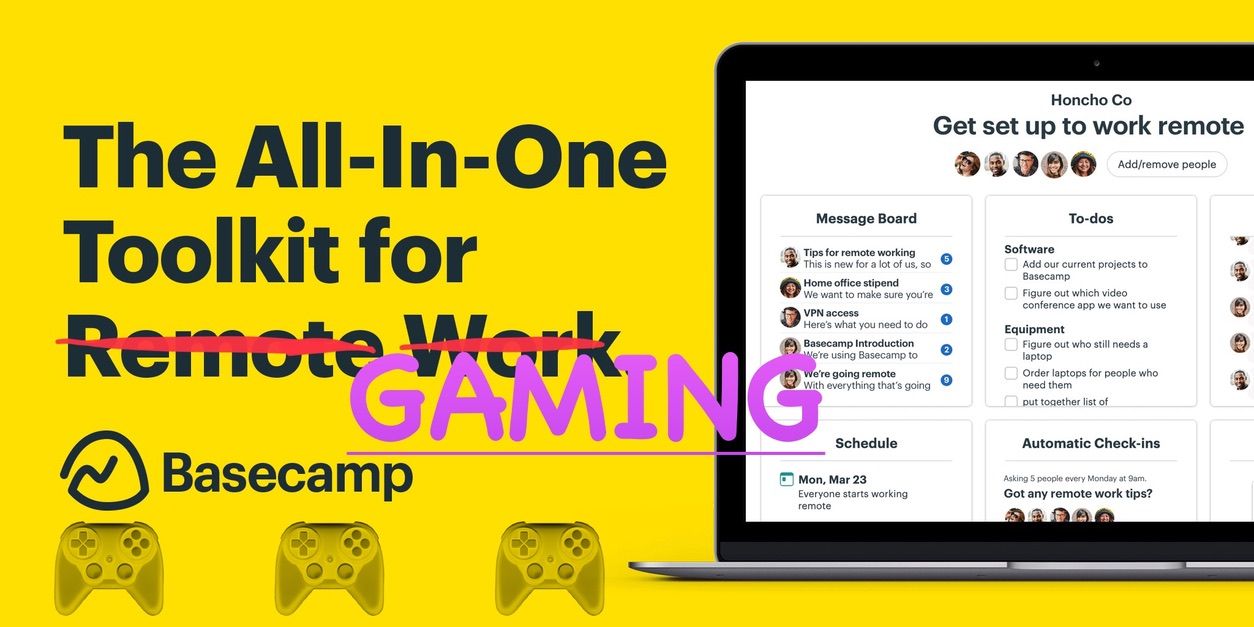
To say I was a gamer in my teenage years is an understatement. However, the gaming scene today is vastly different, and it's clear from Twitch and YouTube that people really enjoy watching others play. For me, gaming has always been about the stories that provides an escape from the present world. Second to that, I enjoy conversing with friends about all things gaming.
I am an adult now with responsibilities towards family and work (in that order). My passion for games got lost along the way. People say, if you really are passionate, you will make time. This is true to a certain extent. However, life isn't always that simple.
Anyway, earlier this year, I was searching for a place where the topic of conversation is gaming without the negativity of the real world. Three of us (similar age and jobs) found comfort in Basecamp Personal. I take full credit for this idea and execution because when I initially suggested Basecamp; I was told, the last thing we need in our life is another corporate app. It's all a matter of perspective, one needs to look at a software objectively and use it for your use case.
What is Basecamp?
Well, in this case, it's a one-stop shop for all things gaming between close friends.
In the real world, Basecamp is a premier project management + internal communication tool for remote WFH teams worldwide.
With over 3.3 million Basecamp accounts created, it is well regarded in the project management space which I have no experienced in. However, I am responsible for 10 of the 3.3 million Basecamp accounts created, and these are not used for any project management work or any revenue generating activities.
Why Basecamp Personal?
- Multi-Platform — Android, iOS, macOS, Windows and any modern browser
- Privacy focused
- Free
- Flexible and modular
We all work in big corporations, and many popular apps/services are blocked by our IT department. Thankfully, Basecamp works perfectly.
At first, we were cautious of using Basecamp for free because, as you know, nothing in life is free. If you do not pay financially, you will pay through sacrificing your privacy and/or data (🤔 Gmail, Facebook etc). Fortunately, some things in life are still free with no other costs, and Basecamp Personal is a delightful example of this.
How we use Basecamp?
Note: My friends were not keen on making our Basecamp setup public, so I attempted to recreate it and based the characters in this story on the founders of Basecamp, David and Jason (for light-hearted fun only) to give you an example of how we use Basecamp Personal.
The ease of account creation is the single reason why I attempted to recreate our Basecamp setup. Basecamp only asked for my name and email address. Nothing else! No credit cards, no secret questions, no personally identifiable information. It's actually nice to have your privacy respected. A strange feeling.
Basecamp is our safe place where we discuss, plan and have fun with gaming. Basecamp is modular and therefore allows us to turn off any “tools” (features) that are irrelevant. We disabled:
- Message Board
- To-dos
- Email forwards
- Automatic check-ins
I also appreciated the option to re-arrange the tools, allowing me to put Campfire (most used) on the top left etc.

This leaves us with a very custom setup:
- Docs & Files: starter guides, books, cheat sheets, maps, etc
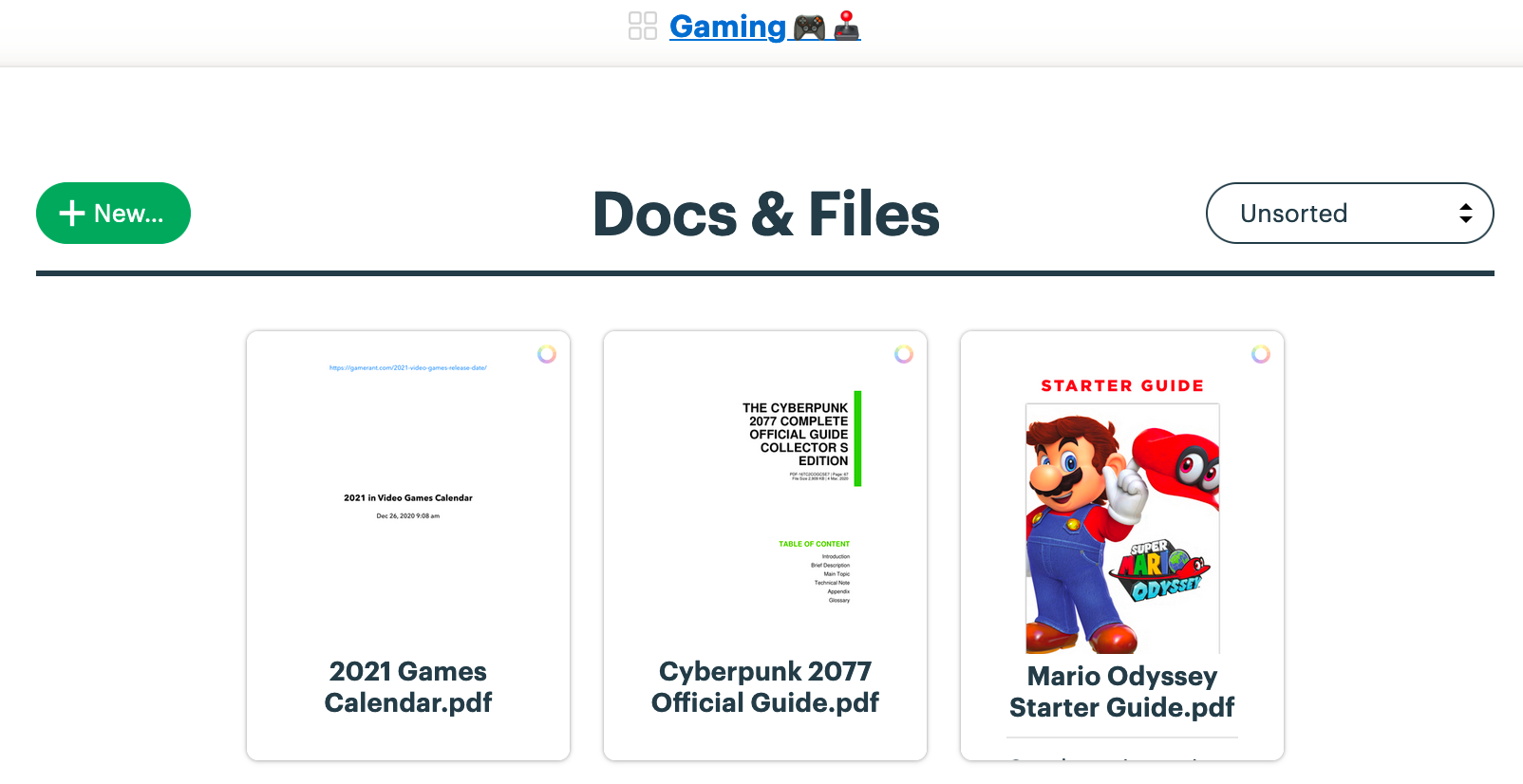
- Campfire: discussions on gaming, sharing screenshots, betting on when Cyberpunk will come out. Giving crap to a friend who bought the Xbox Cyberpunk Edition months before the release of the game. Sharing links to gaming music we enjoy. My personal favourite is from Witcher 3.
Below is a glimpse into how we use Campfire:
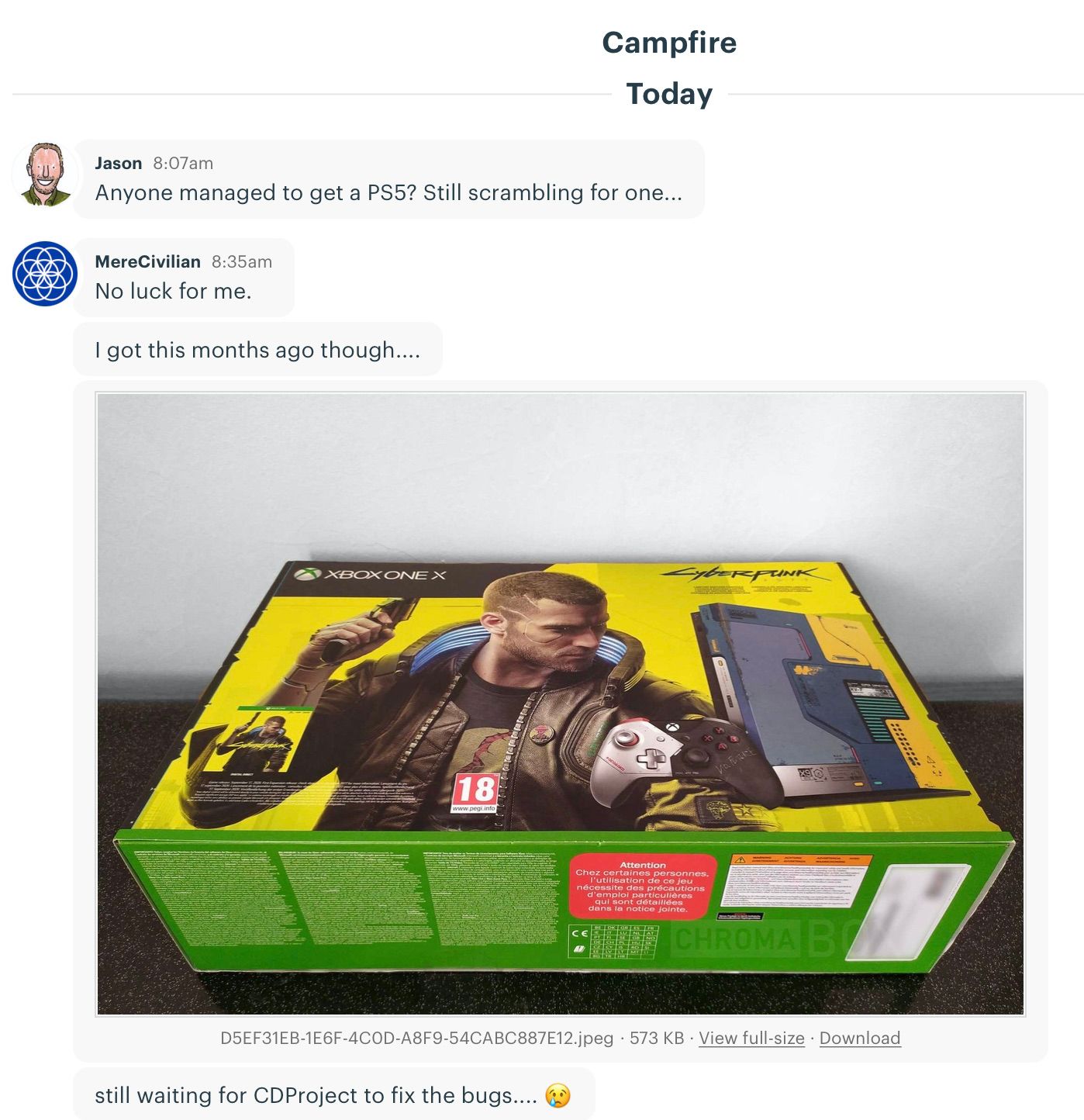
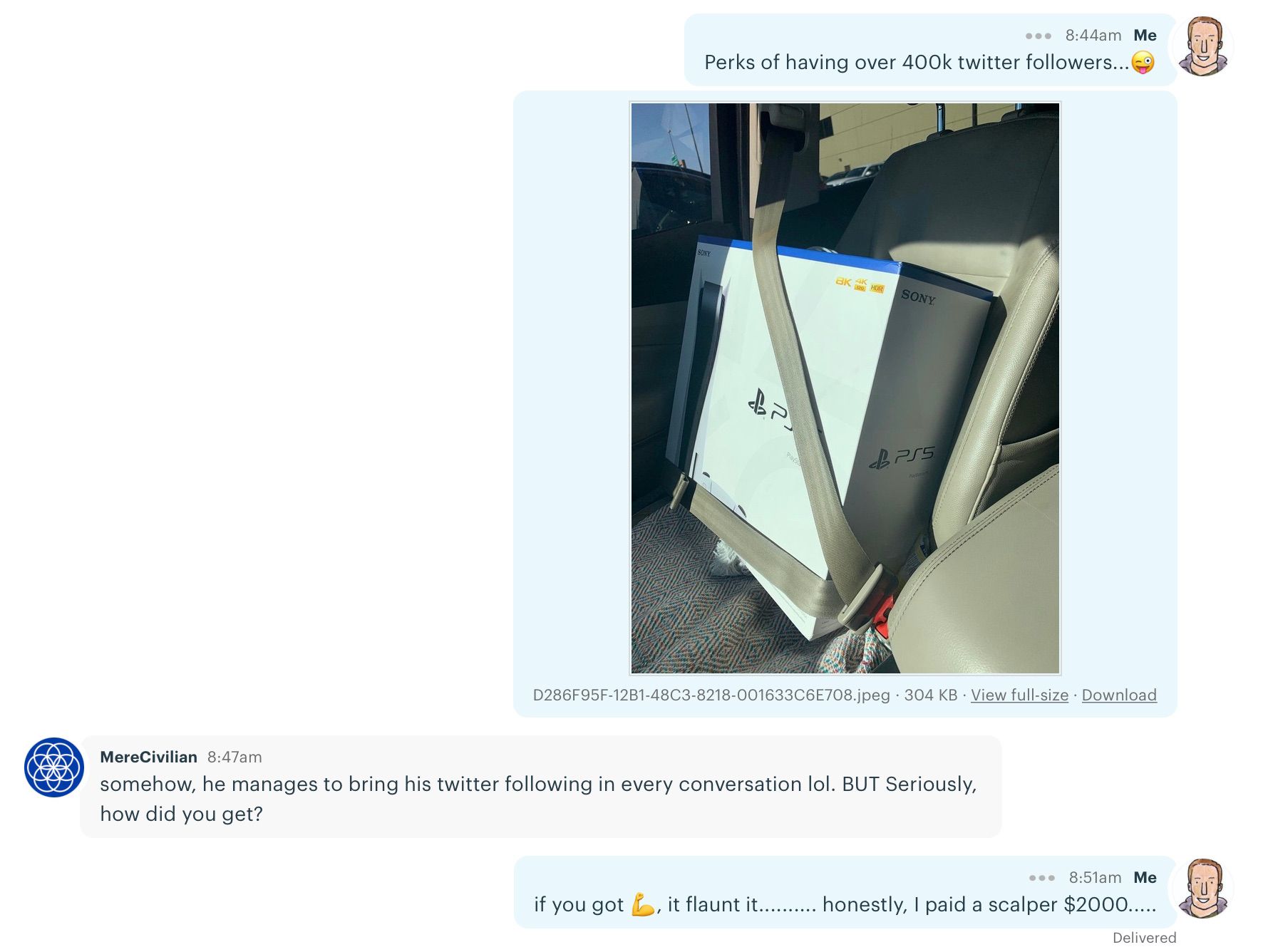
- Schedule: this is where we add release dates for games we are looking forward to. We plan and schedule time to play games. This doesn't always work out. Life gets in the way.
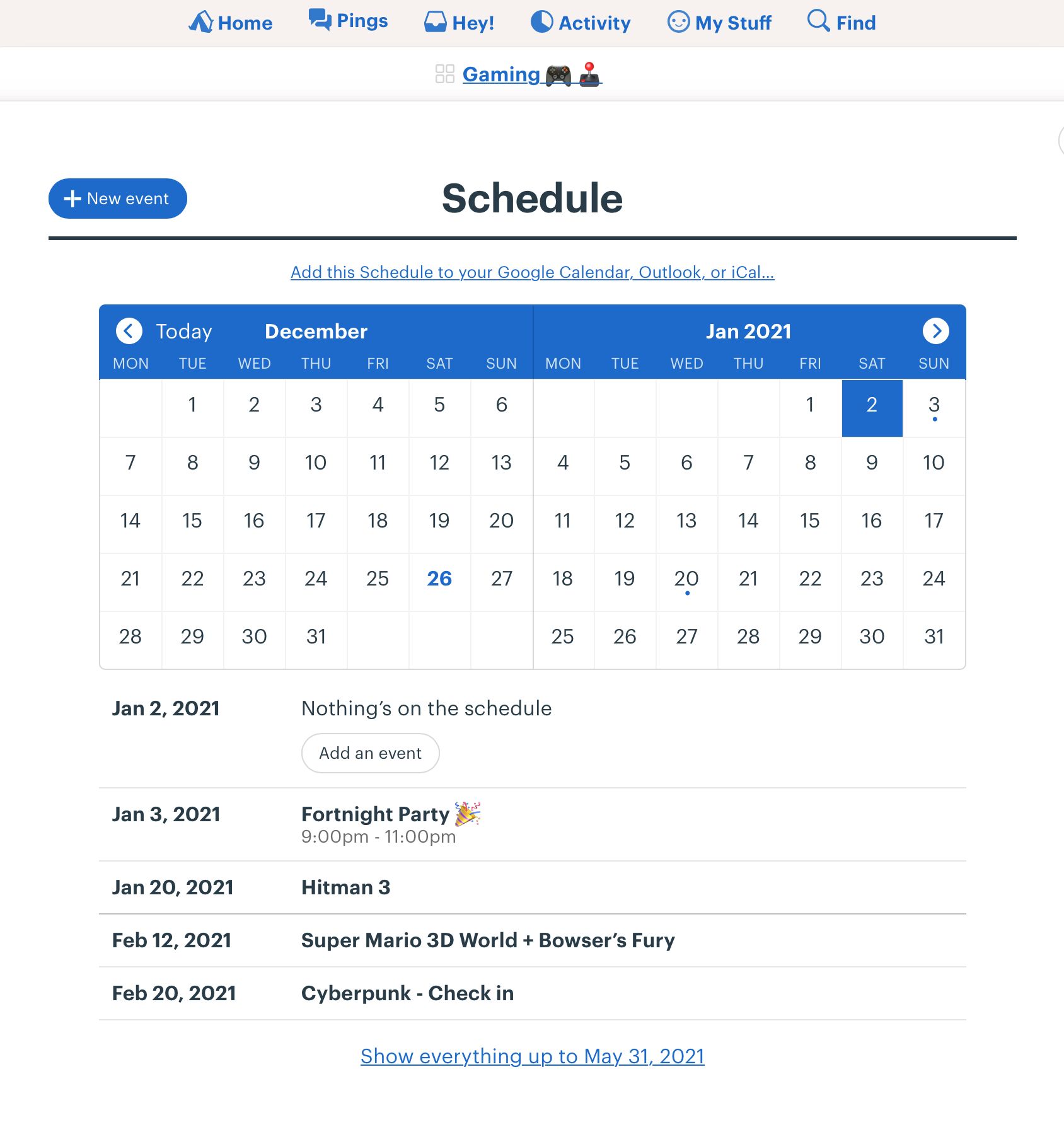
By default, email notifications were turned on so at first, every chat, files, events created, each one of us were notified. Thankfully, Basecamp offers in-depth control of notifications to your liking.
Example:
Recently, Streets of Rage 4 was released and in our childhood, we had spent hours if not days playing the Streets of Rage series. Replaying this together again in our adulthood, resurfaced memories of the time when all we did was enjoy and have fun in each other’s company through our passion for gaming. We lived in a perfect world. Little we knew how strongly this dream will be shattered in our adulthood.
Using Basecamp, we organised when we will play online, our respective characters and argued over who will pick which character. We also discussed our childhood memories. It’s fascinating because each of us vividly remembered stories that the others had forgotten. We shared Easter eggs we found. The music and the overall feel of the game is an enormous walk down nostalgia street.
Basecamp for Task Management
Things by Culture Code is my task management app of choice and has been for over 2 years now. As much as I enjoy using Things, it bugs me that I cannot use it at work (Windows) and cannot attach files to my tasks. I attempted to move to Basecamp for all things task management but the limitation of three projects (5 would be ideal), lack of repeating tasks was a dealbreaker and the paid-up version is $99 a month which is out of the question for me.
If it suits your workflow, Basecamp Personal is excellent for personal task management. It's extremely flexible, intuitive, collaborative (up to twenty users), well designed and an exceptionally reliable service.
Considering how unreliable our current corporate solution is, I pitched Basecamp to my organisation’s IT head. It’s unlikely this will gain any traction as changing software for an organisation of 30,000 people is no easy task.
My intention behind this post is to demonstrate the importance of having an open mind and thinking freely, thus allowing you to objectively evaluate the best use of the tools in your arsenal. Basecamp is a business software solution. However, it's clear from my use case, that one shouldn't pigeonhole software into categories.